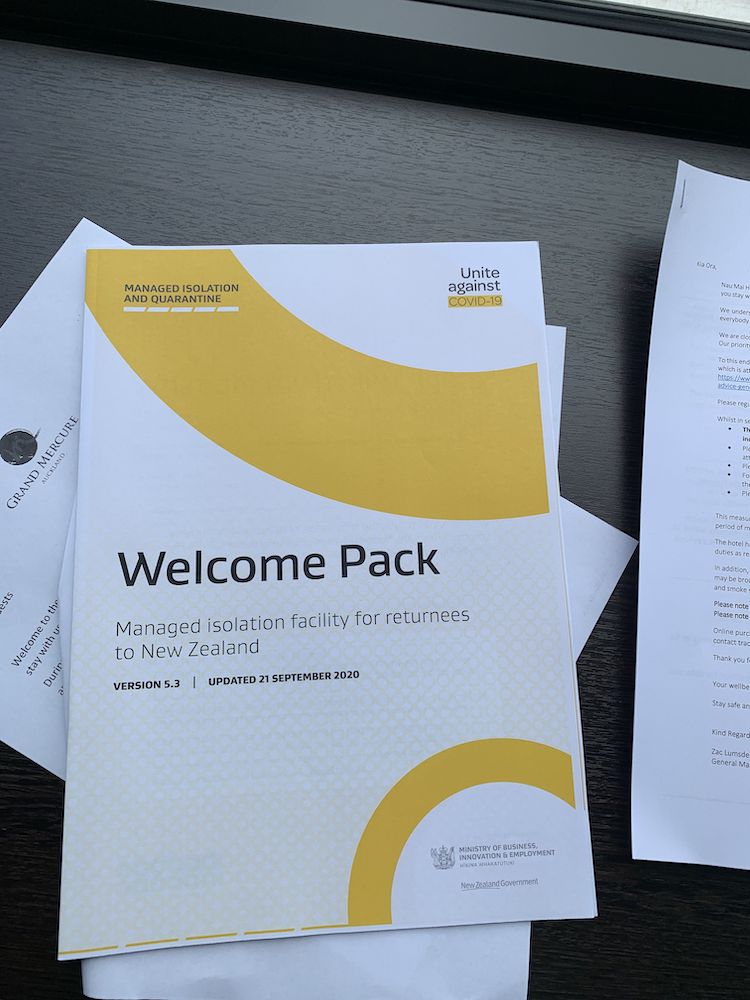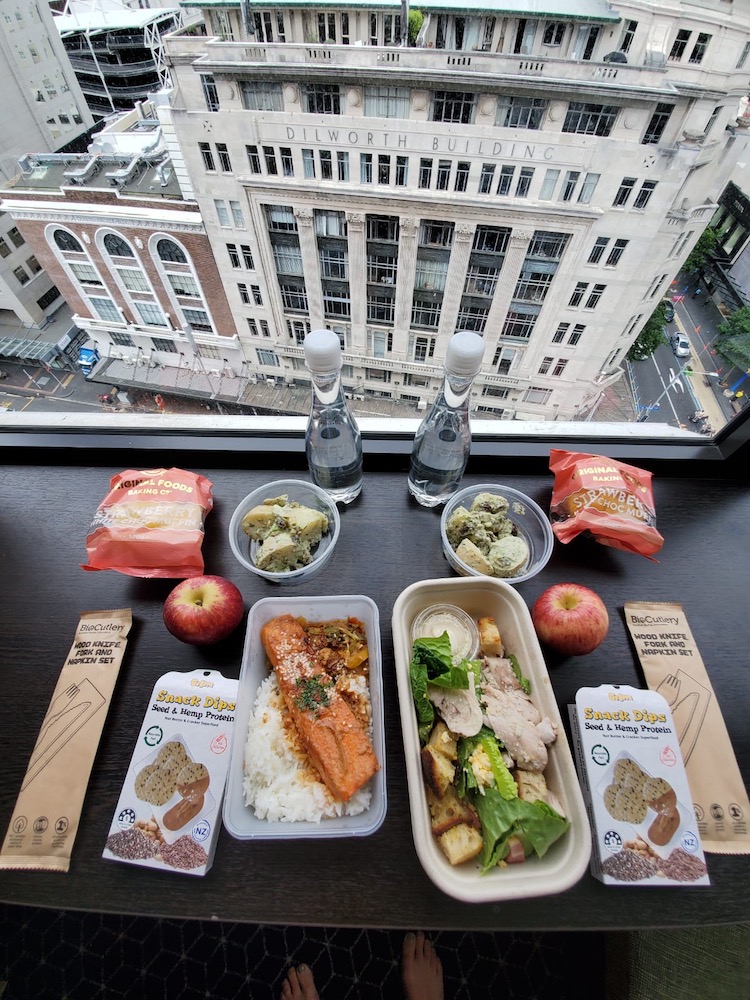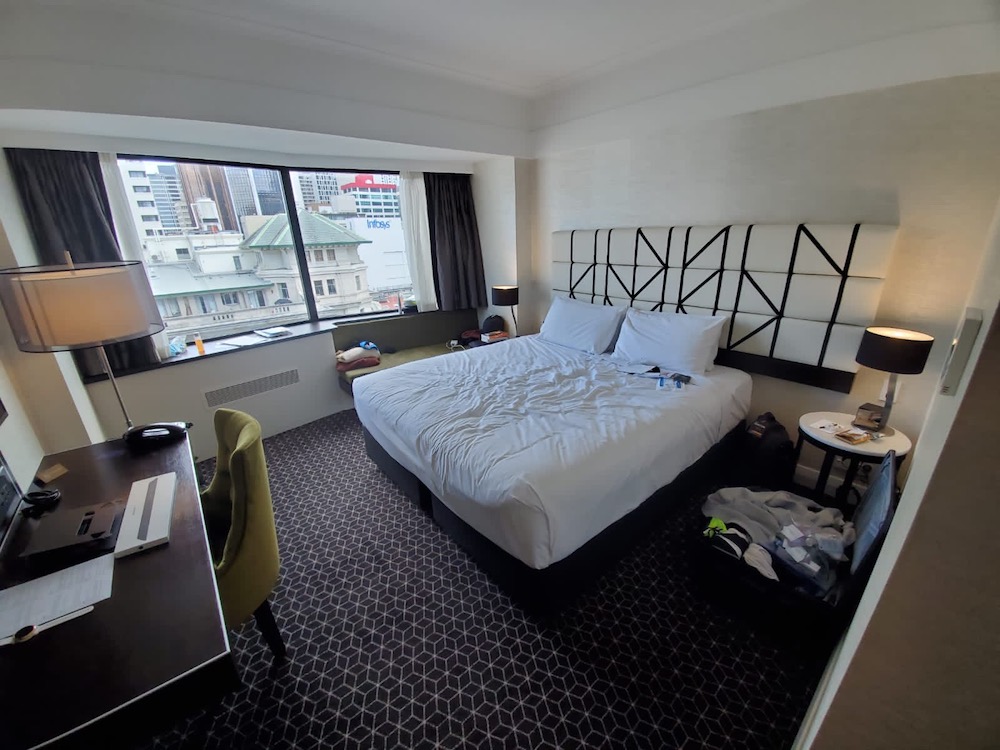The future seems brighter since my Kiwi-husband and I arrived in New Zealand two weeks ago. The second wave of COVID-19 exploded back home in British Columbia just as we left. Although New Zealand officially closed its international borders in mid-March, citizens and residents, along with their partners and dependants, may still enter the country.
New Zealand implemented one of the toughest responses to the emerging COVID-19 pandemic. Unlike most countries where international travellers must make their own quarantine arrangements (and governments trust they will comply), New Zealand mandates a strict 14-day managed isolation in a supervised facility. These facilities are repurposed hotels scattered throughout the North and South Island.
The process for managed isolation began before we booked our flights. We had to reserve a voucher that secured an available room. We did not get to choose which facility we wanted but rather would find out what part of the country we would be isolating in upon arrival.
The handful of international flights landing in New Zealand are processed through the Auckland airport. We arrived mid-afternoon and were met with a health official who escorted us, along with the other passengers on our flight, through the airport. We remained together as one big “bubble” as officials collected a COVID-19 symptom questionnaire, took temperatures and checked our passports. We boarded a bus to the Grand Mercure hotel — our five-star prison for the next two weeks.

New Zealand’s commitment to eliminating COVID-19 was evident when we arrived at the hotel and were greeted by the military with hotel personnel. Staff, shielded by plexiglass and masks, checked us in and recorded our intended length of stay in the country. This last part is important because it determines who pays for the stay. The cost for one adult is equivalent to just under C$2,900 (with each additional adult approximately C$870). A traveller must pay these fees if they intend to be in the country for less than three months. Since we are staying for six months, the government covered our costs. Subsequent arrivals result in even more fees which provide a strong disincentive for non-essential travel.
The weight of the two-week purgatory descended on us as we carried six pieces of luggage into the small room. The lack of space was compounded by the fact that my husband brought his triathlon bike and trainer so he could spin. In theory, this was a good idea since we were not allowed to exercise outside of our rooms. But it also meant even less space to move around and a noisy hour every day for me.
Medical staff and resources were available any time of the day. This included specific mental health and Indigenous services. Each day a nurse would come by our room to do a “health check” to ensure we were not experiencing any symptoms. COVID-19 tests were administered on Day 3 and Day 12. A positive result would mean a transfer to a separate quarantine facility to be monitored, and the 14-day isolation period would restart.
The best part of the managed isolation experience was the food. Meals come three times a day and were pre-ordered two days in advance. The weekly menu is set with three options to choose from for breakfast, lunch and dinner. Options included a seafood paella, miso-glazed salmon and avocado toast. Tuesdays were “Hot Dog Day” and Wednesdays we could choose from an assortment of savory New Zealand pies.

One of the only drawbacks to this experience was the lack of exercise. We could sign up for a supervised walk every two days that left the hotel at three different times per day. Since we were located in downtown Auckland, this meant a short 15-minute bus ride to a grassy field surrounded by barracks. Masks were donned everywhere outside the room and hand sanitizer was encouraged when we entered and left common spaces.
The experience of managed isolation provided me with a different perspective for how a country might respond in the face of an emerging threat. As a public health researcher — both at the University of British Columbia and the World Health Organization — I have spent the last year thinking about different country responses and associated health outcomes. The typical response, such as the one in B.C., has been to supress the virus or “flatten the curve,” whereas New Zealand sought to completely eliminate the virus from its shores. Only a handful of other countries have taken an elimination approach including Taiwan, China and Australia. All of them demonstrated markedly fewer cases and deaths than countries that pursued goals to suppress.
New Zealand’s “go hard, go fast” elimination strategy also meant that Kiwis suffered less economically compared to other countries. Initially, the gross domestic product did take a sharper downturn due to the early Level 4 lockdown nationwide but has been able to bounce back better than other countries. This is also true for Taiwan, China and Australia. It seems elimination could be the optimal response.
On Day 14, after two negative COVID-19 tests, my husband and I checked out of the hotel and into a new world of freedom, one that we haven’t experienced since the first few months of this year. It’s been a bit jarring, to be honest, but a welcome change.
Dear Tyee readers: comments are closed until Jan. 4 to give our moderators a much-needed holiday break. Best wishes to you and yours. ![]()
Read more: Travel, Coronavirus















